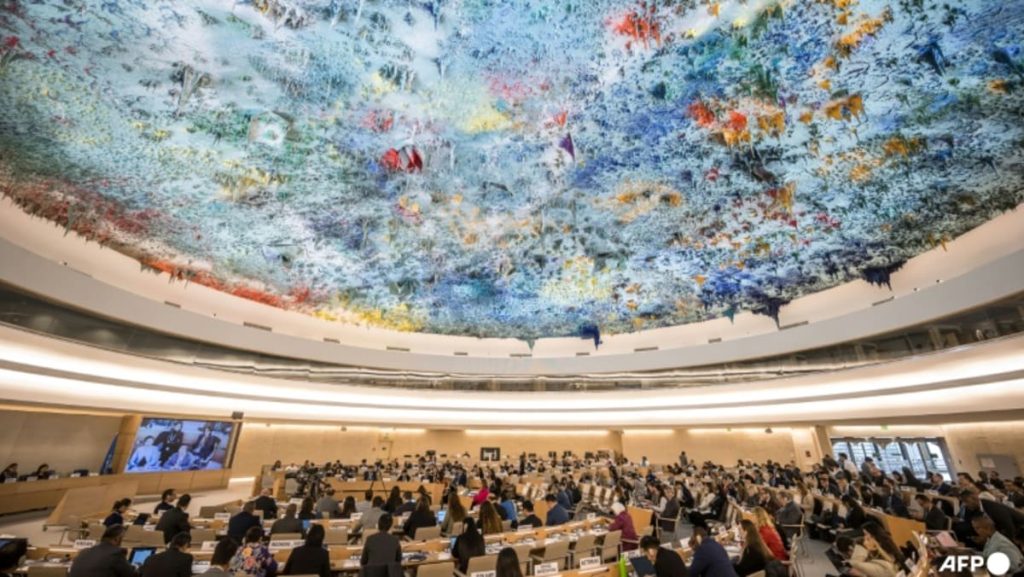China tried to block a statement before the UN Human Rights Council regarding dissident Cao Shunli, who died after being detained while attempting to travel to Geneva before a UN review of China’s rights record in 2014. Several months after being held without charge, she fell gravely ill and passed away. A Chinese human rights defender from a group of 37 non-governmental organizations paid tribute to Cao, calling for accountability for victims of reprisals and urging diplomats to stand in solidarity with human rights defenders.
China’s representative, along with representatives from Cuba, Venezuela, and Russia, objected to the NGO speaker’s use of silence, claiming it was provocative and called for a halt to her intervention. However, the European Union, United States, Canada, and Britain defended the NGOs’ right to speak, emphasizing the importance of protecting freedom of expression in the forum. Council President Omar Zniber ultimately allowed the NGO speaker to continue her statement, which was delivered in Chinese as a tribute to Cao.
China’s attempt to block the statement echoed a similar incident ten years earlier when another NGO tried to hold a moment of silence in the council for Cao, resulting in disruption for over an hour. UN experts reiterated a longstanding demand for Chinese authorities to fully investigate Cao Shunli’s death and hold those responsible accountable. They also called on Chinese authorities to allow its citizens to engage safely with the UN, emphasizing the importance of upholding human rights and supporting the work of activists like Cao.
The tribute to Cao Shunli and the subsequent clash at the Human Rights Council highlighted the ongoing challenges faced by human rights defenders in China and around the world. Despite efforts to silence dissent and suppress activism, many organizations and individuals continue to push for accountability and justice for victims of human rights violations. The incident also underscored the importance of international forums like the UN Human Rights Council in providing a platform for advocacy and raising awareness about human rights issues globally.
The insistence on honoring Cao’s memory and calling for accountability for her death reflects a broader movement within the human rights community to elevate the voices of those who have suffered injustice and repression. By standing in solidarity with individuals like Cao and other victims of reprisals, human rights defenders aim to ensure that their sacrifices are not forgotten and that their legacy continues to inspire others to advocate for justice and human rights. The clash between China and the NGOs at the Human Rights Council further underscored the need for continued vigilance and determination in the face of opposition to human rights advocacy and activism.
In challenging China’s attempts to block the tribute to Cao and defend the rights of NGOs to speak freely, countries like the United States, Canada, and members of the European Union demonstrated their commitment to upholding human rights principles and supporting the work of activists and organizations around the world. By advocating for transparency, accountability, and respect for human rights, these countries played a crucial role in pushing back against efforts to suppress dissent and silence those who speak out against injustice. The incident at the Human Rights Council served as a reminder of the ongoing struggle for human rights and the importance of international cooperation in advancing a more just and equitable world.














